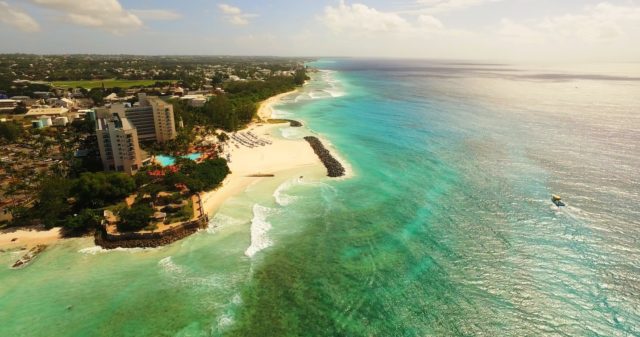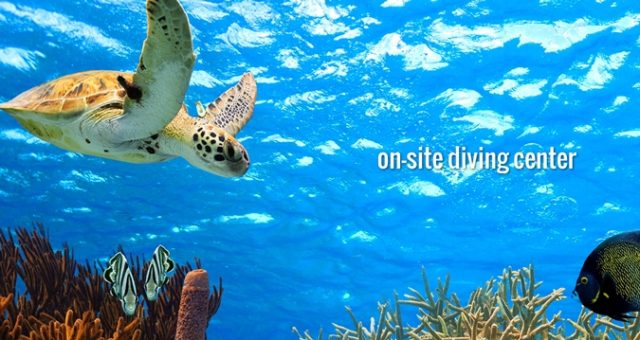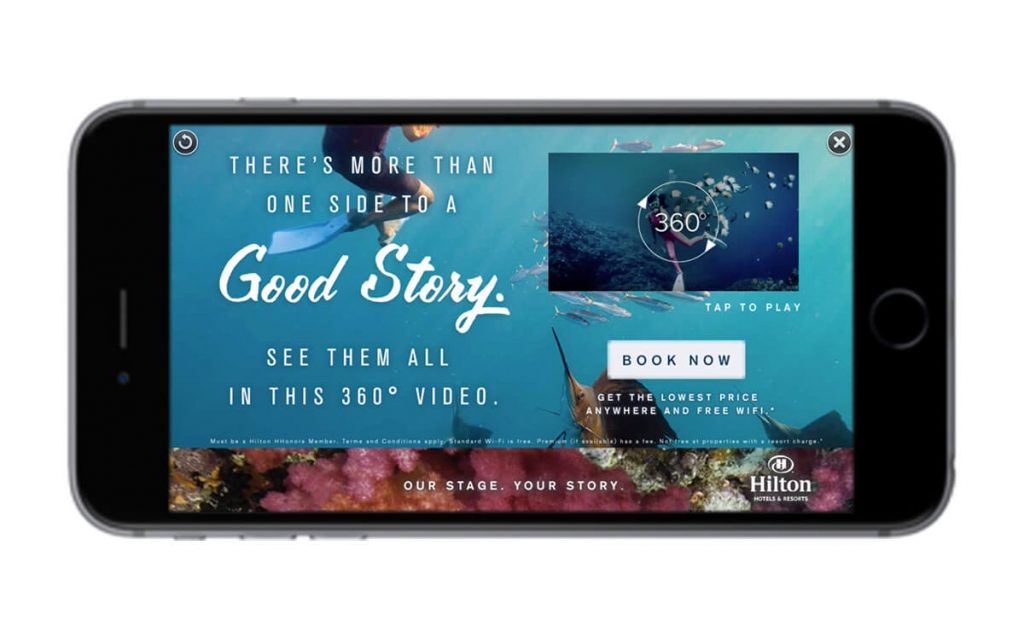The greatest asset hospitality advertisers can showcase almost always boils down to one thing—setting the stage for their scenic and scintillating properties.
Hilton Worldwide recently opted against the usual serving of static images on social media and incorporated a 360-degree mobile video ad campaign featuring hot shots of their exotic Barbados locale. The immersive and engaging experience—“Destination: Inspiration”—was complemented with a “book now” call to action at the end of the video.
Stuart Foster, Hilton Worldwide’s vice president of global marketing, joined [a]listdaily to detail how the hotel company is using 360-degree video and virtual reality to drive brand awareness—and bookings.

What was the impetus of the “Destination: Inspiration” experiential marketing activation? What are some insights can you share?
Hilton Hotels & Resorts’ “Our Stage. Your Story.” brand initiative, now in its third year, is about inspiring audiences to travel and helping them turn their travel dreams into reality. We know that visualization plays a major role in our guests’ decision-making process. In fact, according to data from an online survey commissioned by Hilton Hotels & Resorts, over 9 in 10 travelers say they set goals for themselves, and for these travelers, visualization is the most common method used to achieve those goals. Through the “Destination: Inspiration” 360-degree video, we took visualization to a new level by allowing potential guests to immerse themselves in our hotels and surroundings before they even step foot in the lobby. The video features the Hilton Barbados Resort and not only creates a fully immersive experience at one our most beautiful hotels, but includes a new avenue for travelers to instantly book their dream trip via an end card linked to Hilton.com’s reservation system if they’re inspired to do so in that moment.
Was it a success in that regard?
Success for this campaign was in driving awareness and consideration for the Hilton brand. We used cutting-edge technology that creates an immersive experience unlike anything else out there for our guests as they start to plan their next trip. We’re excited about how consumers have responded to the video campaign thus far and are exploring options for follow-up videos that will immerse audiences in our portfolio of over 570 hotels based on learnings from this first campaign.

How did you go about securing advertising partners to provide access to mobile in-app audiences for a targeted ad campaign?
We partnered with Opera Mediaworks to reach mobile audiences for this campaign. Through this partnership we were able to deploy one-of-a-kind mobile ad technologies like Instant-Play HD Video and gain access to unique and powerful data signals to target the right person at the right time.
Consumers who typically use VR are not necessarily the ones who book hotel and resort packages. How do you reach high-end leisure travelers and parents? How about digital natives?
Brand adoption of VR and consumer use and familiarity with the technology has truly exploded over the past year. What’s great about 360-degree video as an extension of VR is that while it can be viewed through devices such as Google Cardboard or Samsung Gear VR, it doesn’t require headgear and thus is accessible to everyone—including consumers who are only able to view it through video streaming websites on their smartphone or computer.
With virtual tourism, how do you give just enough of an experience for people to be tantalized to actually visit? How much is too much, and how do you find the right balance?
Until the day that technology can physically transport viewers to the doorstep of one of our hotels in an instant, there will never be ‘too much’ given away via these virtual experiences. It is our mission at Hilton to be the most hospitable company in the world and our passion to create exceptional experiences for our guests wherever their travels take them. No matter how immersive a video is, nothing can compare to actually experiencing Hilton hospitality at one of our hotels.

Is incorporating VR a crucial strategy you see the entire hospitality industry adopting in the immediate future? Why is it a natural fit for the tourism industry?
There’s no comparable technology like virtual reality, and by extension 360-degree video, that creates the same type of immersive experience our guests are looking for as they plan their next trip. The habit of ‘virtually experiencing’ a hotel has been part of the guest-booking experience for years now, only it was previously limited to scrolling through a property’s social feed or website. Virtual reality technology is here to stay and we will continue leveraging this exciting capability to create new experiences for travelers from the moment they begin thinking about their trip to when they’re ready to book that dream vacation.
How will Hilton continue to use VR and other immersive ad experiences to help drive reservations?
The “Destination: Inspiration” video that you saw is the first 360-degree video we’ve created, but is certainly a medium our brand and hotels will continue to explore. For example, our Hilton Waikoloa Village property has created a series of 360-degree videos (which may be seen on the hotel’s Facebook page), and as I said above, we’re looking into options for follow-up installments that will further immerse audiences in our portfolio of hotels.
Follow Manouk Akopyan on Twitter @Manouk_Akopyan

